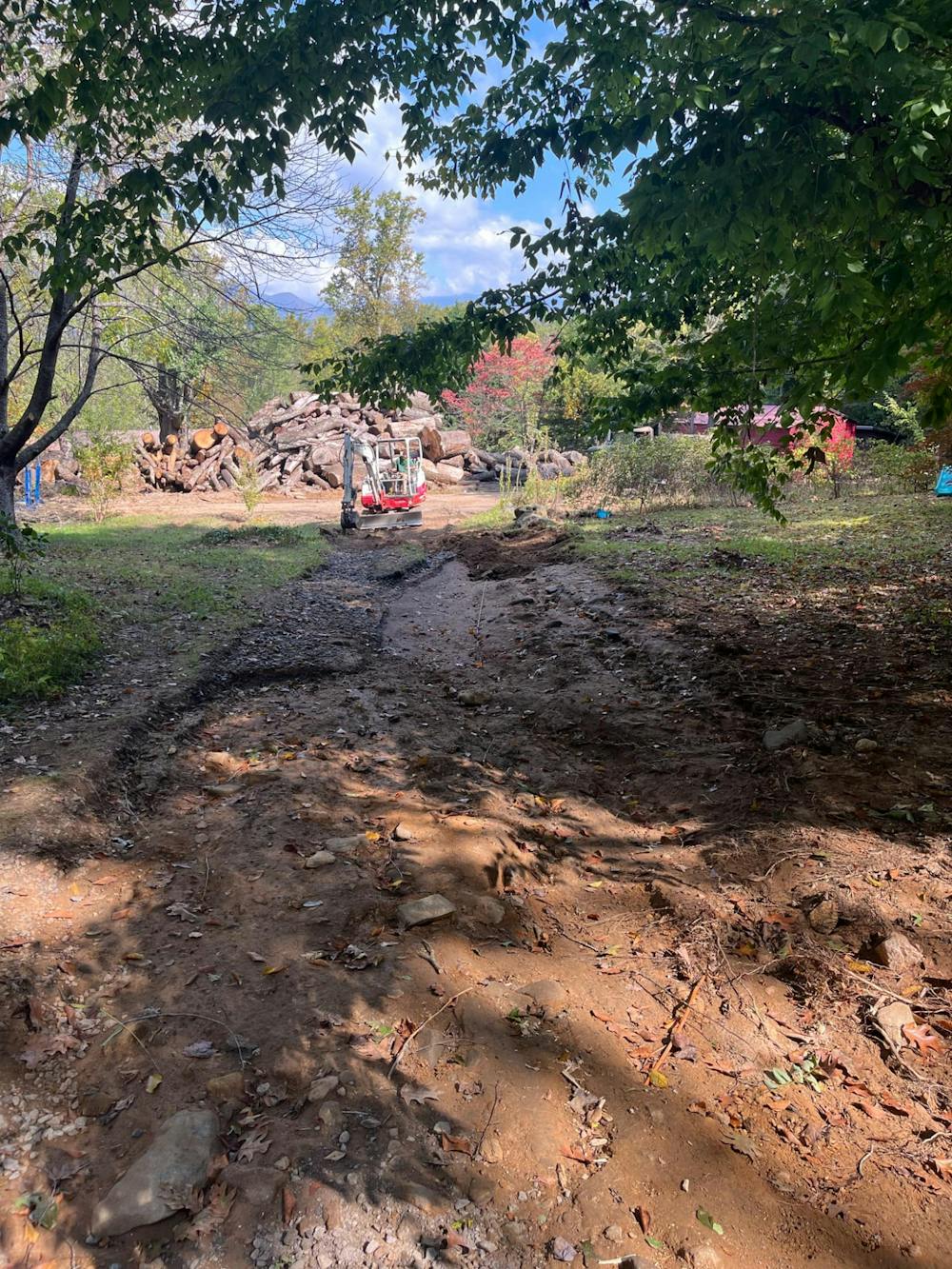In light of Category 4 Hurricane Helene, Auburn University shut down its campus on Thursday, Sept. 26 at 5:00 p.m. and reopened at 11:00 a.m. the following morning on Friday, Sept. 27. Most university faculty and students braced themselves for a stormy night but woke up the next morning physically unscathed, only dealing with mild rain walking to class.
During the night, Hurricane Helene redirected from Auburn but still devastated the southeast United States. The states most affected were Florida, Georgia, Tennessee and the Carolinas.
According to disaster relief support organization All Hearts and Hands, "Hurricane Helene's death toll has risen to over 200, making it the deadliest hurricane to hit the U.S. mainland since Katrina in 2005. Nearly 1 million homes and businesses are still without power, and tens of thousands lack running water."
The aftermath of Helene has left Auburn University faculty and students shaken.
Hurricane Helene affected Auburn faculty and students in more ways than just the university shutdown. Many out-of-state faculty and students’ families, friends and hometowns were caught in the storm.
Assistant Director of Student Affairs Dr. Whitney Comer was one of many Auburn University faculty members indirectly affected by Hurricane Helene through family and friends.
Comer was in Auburn when Hurricane Helene touched down but spent the evening calling loved ones to ensure their safety.
Comer and her family are from Greene County, TN. Among the most impacted counties, Greene County hosts Nolichucky Dam, a dam that was breached by the rising floodwaters. According to the Tennessee Valley Authority report on Sept. 28, Nolichucky Dam is “stable and secure,” but Hurricane Helene brought over 19 inches of rainfall to the area.
Like many other Tennessee residents, Comer’s aunt also did not have electricity or running water for multiple days because of flooding.
“I go and visit my family. My husband and I, and our eight-year-old son, we go camping up there," Comer said. "So, I guess, the area that I grew up in, that I love, is just devastated right now, so that’s just hard.”
Comer also has friends in Augusta, GA affected by Hurricane Helene.
Outside of Tennessee and Georgia, Hurricane Helene devastated North Carolina. Comer attended graduate school at Appalachian State in Boone, NC and still has affected family and friends in the area.
Comer says communication with friends has been challenging because of power outages caused by the storm. A friend of Comer’s lives in Asheville, NC, but since the city still does not have cell service, her friend must drive every few days to get service and call Comer.
After Hurricane Katrina in 2005, Comer made two separate trips to help with the aftermath. The first trip was with her husband. For the second trip the following year, Comer took a group of college students with Presbyterian Disaster Relief.
Before Hurricane Helene, Comer and her family had plans to visit family for her son’s spring break in late October. Now, those plans involve volunteering for a third time with the relief effort in her hometown.
“We’d already planned a trip home, just as a kind of relaxing family visit, but what we’re going to do instead is we’ll go up and volunteer with the relief effort, just wherever we can, whatever we can do,” Comer said.
Hurricane Helene has also directly affected Auburn students like Rose Bradley. Bradley, an Auburn student studying Human Development and Family Science, has been personally affected by Hurricane Helene in her hometown Greenville, SC.
Bradley was in Greenville when Hurricane Helene passed through and shared her personal experience.
“I was here in a house. It was still nighttime, so I woke up at around six to a cracking of a tree falling,” Bradley said.
In the aftermath, Bradley and her family lost power for 12 hours.
Trees fell on other houses in Bradley’s neighborhood, and one tree severed the line on Bradley’s internet box and cut off their Internet connection. The family still does not know when they will have Internet access again.
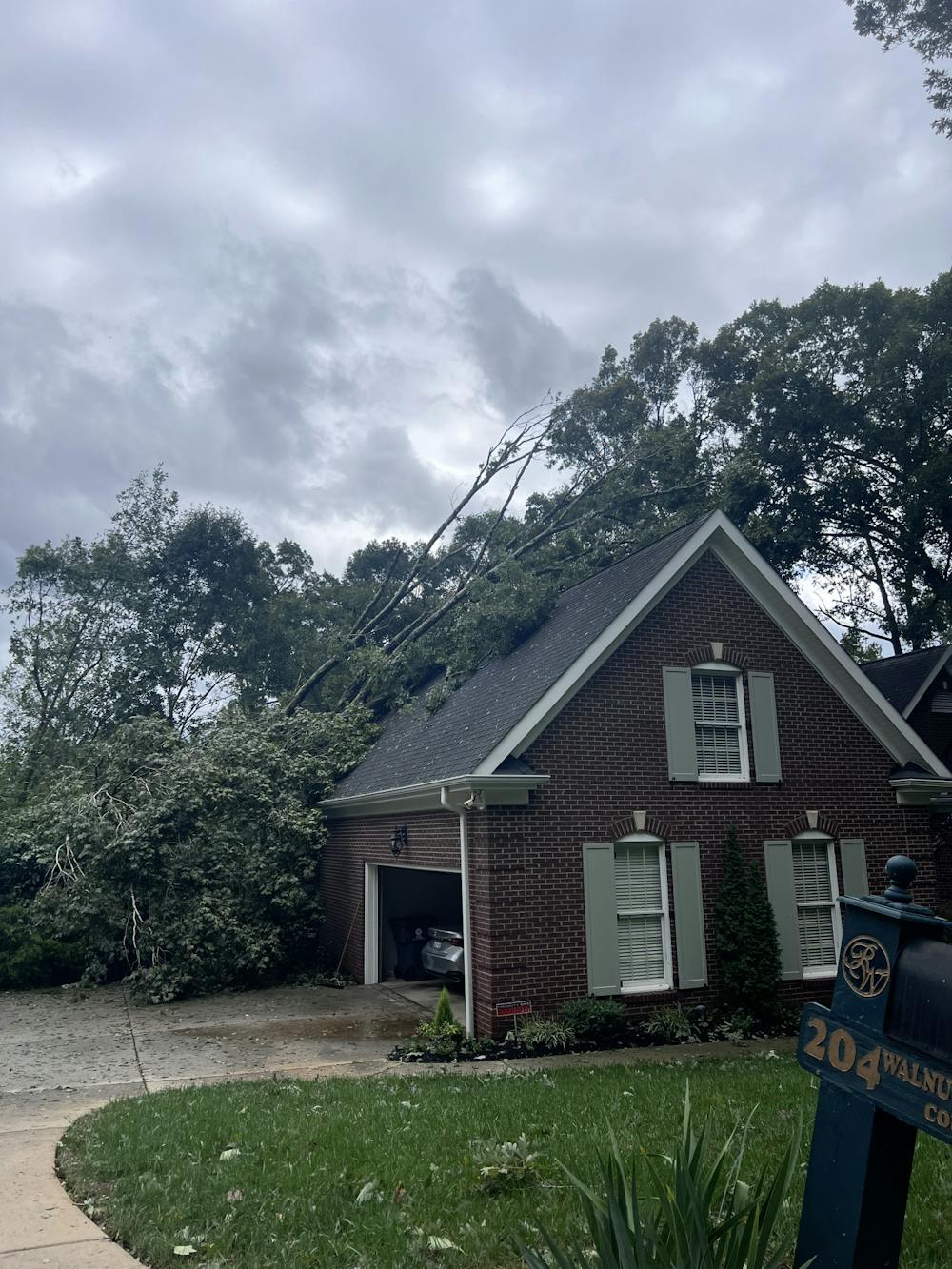
Trees fell on houses in Bradley's neighborhood. Photo contributed by Rose Bradley.
Bradley mentioned that Greenville has never seen this amount of damage before. Many trees are down and a river has submerged cars downtown. Greenville looks almost unrecognizable.
“It’s just so different, because I never expected to be in this kind of spot," Bradley said. "I’ve always considered Greenville to be the area that people evacuate to rather than evacuate from."
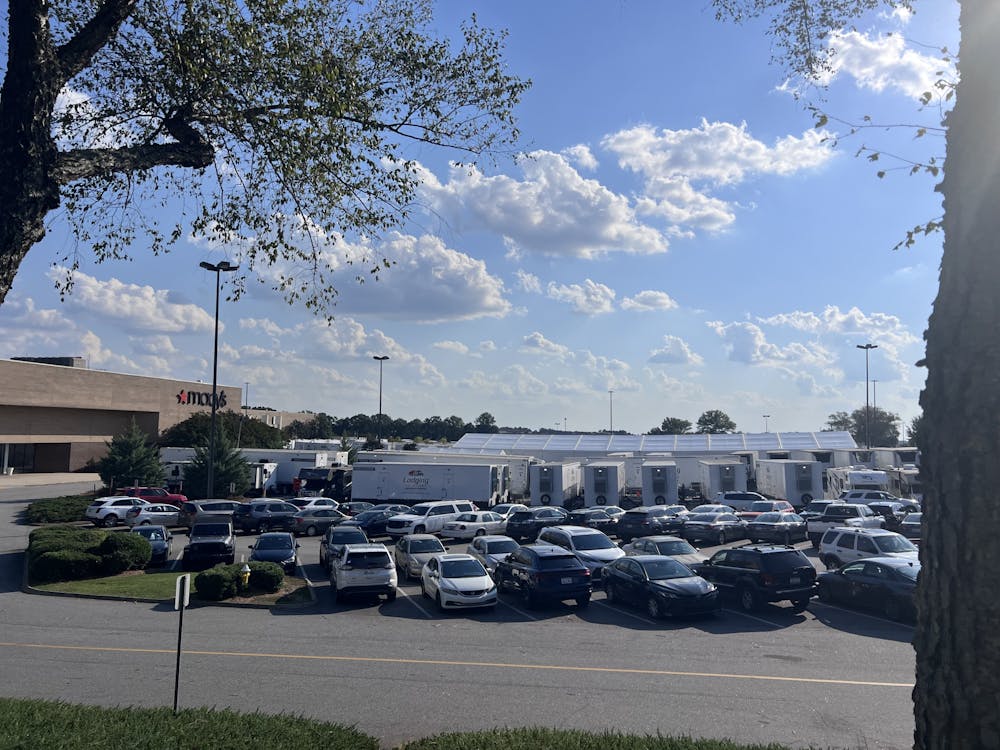
The maintenance village or "pop-up city" outside Haywood Mall in Greenville houses people from other states and Canada who will help restore power. Photo contributed by Rose Bradley.
Whether directly or indirectly involved, Auburn faculty and students can volunteer, but since these affected locations are relatively far from Auburn, donating and fundraising are also options to support victims of Hurricane Helene.
Melissa Garnes, an Auburn senior majoring in human development and family science like Bradley, is doing the latter.
Garnes is hosting an on-campus drive to support Beloved Asheville, a non-profit based in Asheville that has redirected its efforts from housing insecurity to helping victims of Hurricane Helene.
Garnes was in Auburn when Hurricane Helene touched down and shared how she watched the heavy impact on other southeast areas.
“I was watching in live time people on social media posting that the water levels are rising or they were floating in canoes in their houses, as I’m sitting in home in my bed as it’s raining outside,” Garnes said.
Garnes did not have any personal family affected by Hurricane Helene but mentioned how her friends in Tennessee were almost devastated. Although Garnes does not have a direct link to anyone affected, she shared a sentiment about wanting to help.
“[Hurricane Helene] really just got me thinking, ‘What if, like, what if that was my family? What would I want somebody to do for me and for my family if I was in that position? Or if people I loved were in that position?'” Garnes said.
After realizing this, Garnes noticed the Auburn and Opelika communities posting on social media about volunteering and fundraising and wanted to contribute.
“My dad and my mom really instilled that importance of community, whether you’re building it or it’s your immediate family, no matter what it is,” said Garnes.
The Beloved Asheville drive is collecting donations from now until Thursday, Oct. 10 around 5:30 p.m. Auburn faculty students can drop off their donations in bins on the third floor at 344 Spidle Hall. Spidle Hall is next to Ralph Brown Draughon Library.
The donations may include bottles of water, non-perishable food items, clothes and blankets. Some of the most needed items are first aid supplies, insulin, hygiene products, diapers, baby clothes, formula and cleaning supplies, including bleach, shovels and gloves.
Other items can be camping supplies, flashlights, batteries, coolers, trash bags, hand sanitizers, fans and dehumidifiers.
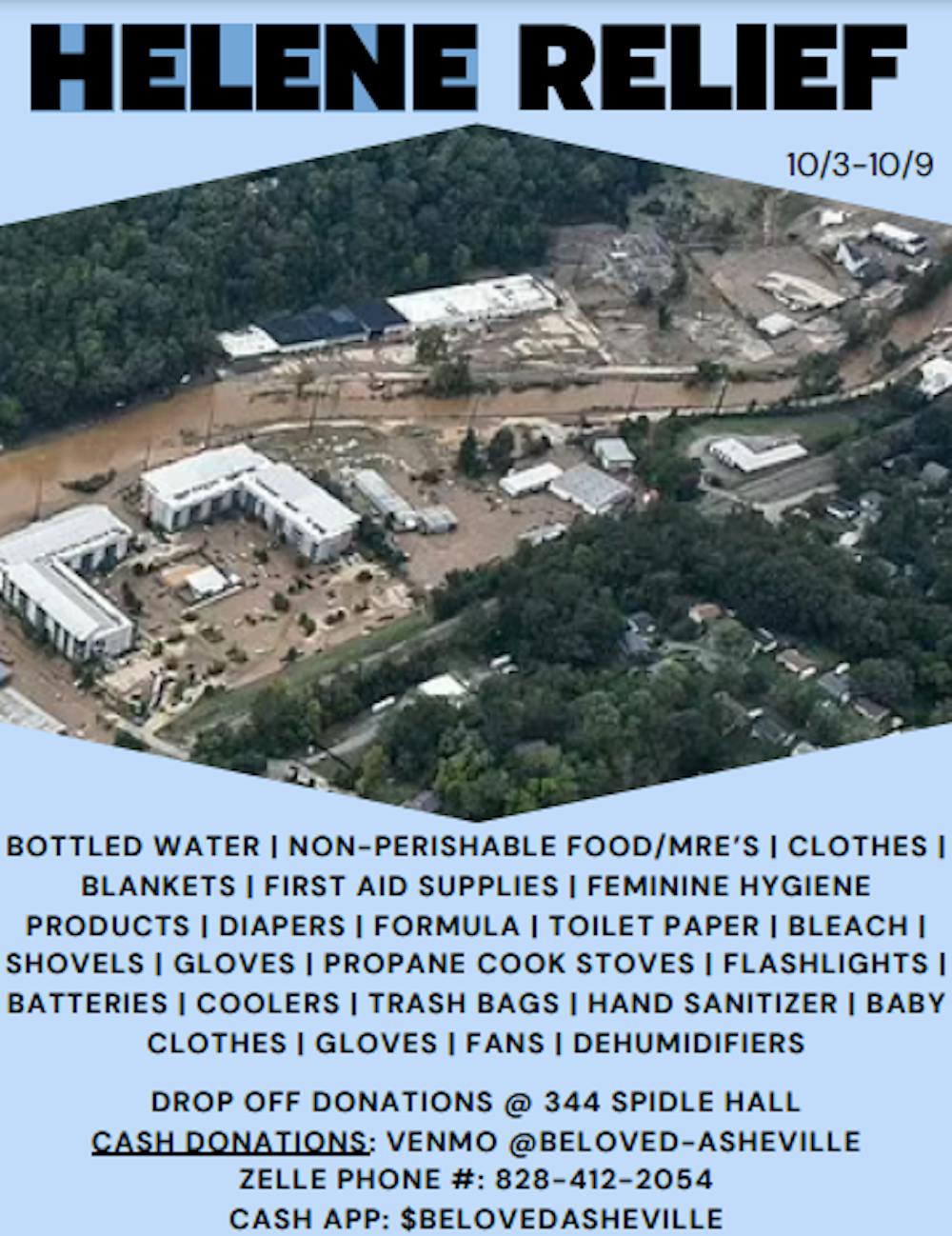
“We had a team go up on Friday from the local community, and so we’ll get a little bit better information about specifics in the area we’re delivering to, which is Asheville, North Carolina,” Garnes said. “However, from other relief efforts, these are kind of the main things that people are needing and talking about.”
Once in Asheville, the team Garnes knows worked for 13 hours straight to repair a road leading up a mountain to a 77-year-old woman's home.
"Prior [to fixing the road] she was only accessible by ATV," a team member said to Garnes over text. "Now we can at least get a truck up there to her."
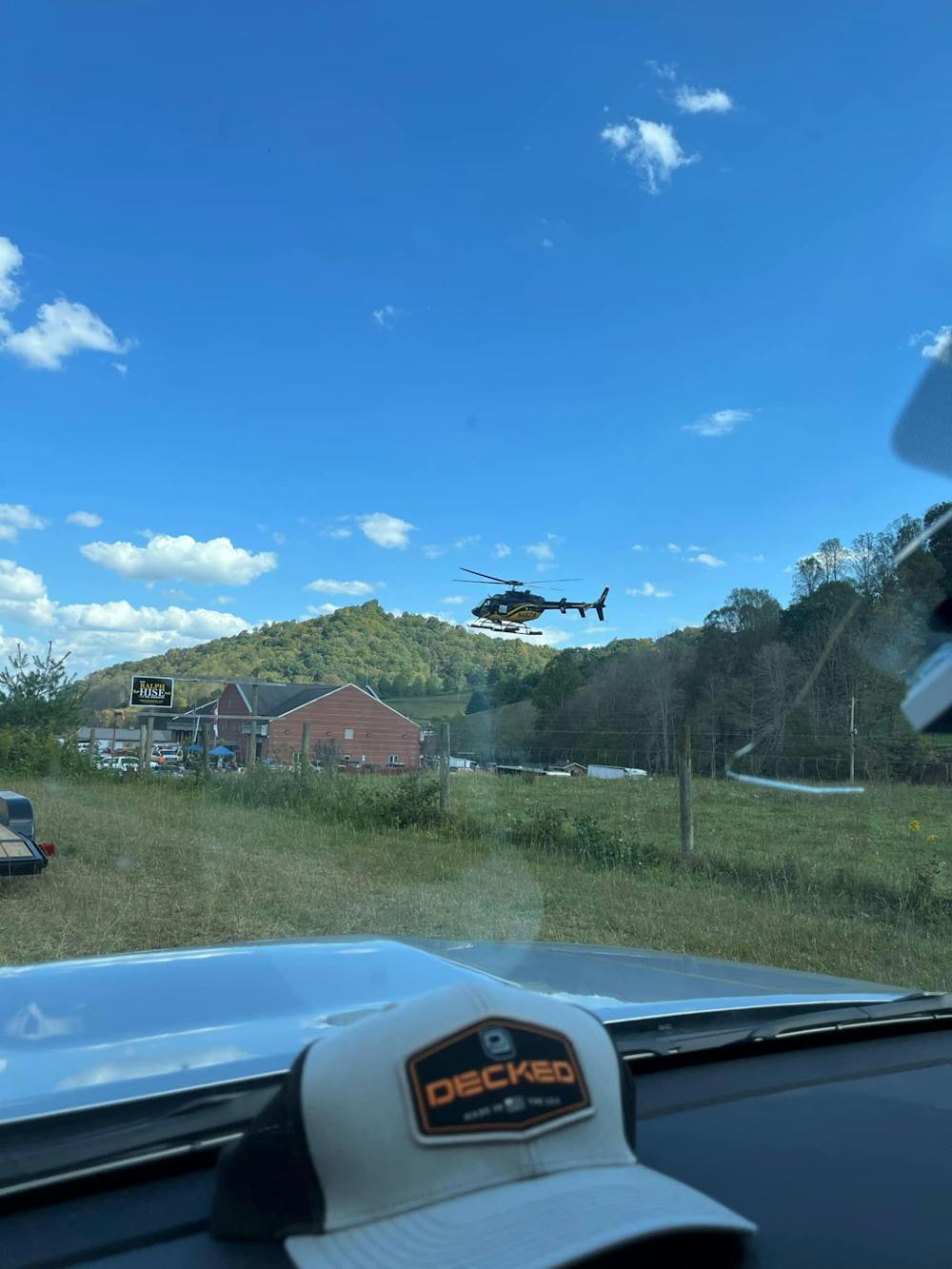
Helicopter landing at West Yancey Volunteer Fire Department near Asheville is dropping off rescued civilians from isolated mountainous areas or delivering supplies. Photo contributed by Melissa Garnes.
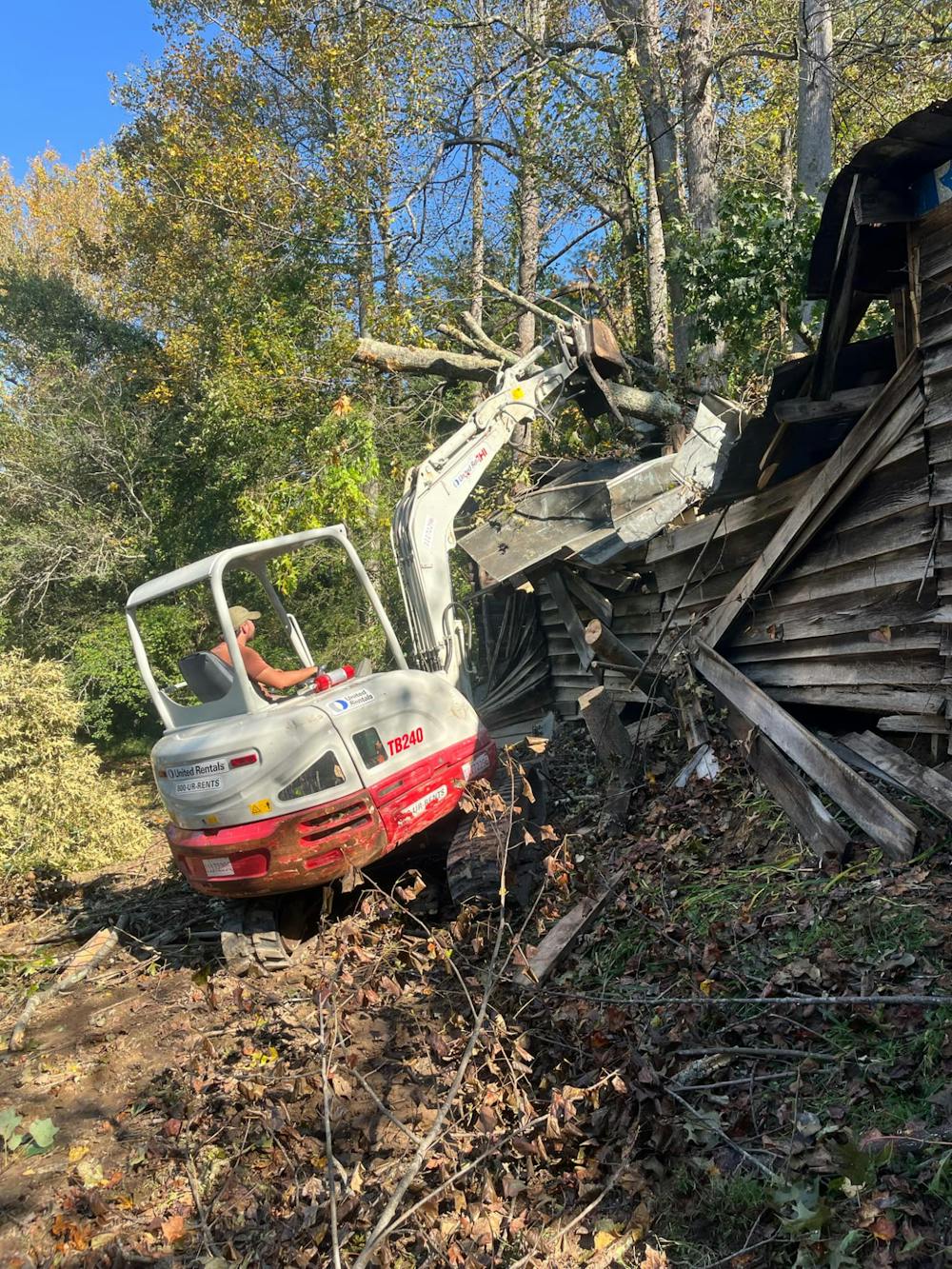
A team clears a fallen tree that crushed a barn and two cars in Hendersonville, NC. Photo contributed by Melissa Garnes.
Garnes emphasized that these victims need help.
“It doesn’t matter that they live in the South or they live in the Southeast. People are people, people are humans, and they deserve the help and they need it," Garnes said. "They deserve not to be forgotten.”
Hurricane Helene has affected the Auburn community directly and indirectly. The local community is joining together to support those personally affected in neighboring states.
Meteorologists estimate a category 5 hurricane will land in Florida from late Wednesday evening to early Thursday morning. The hurricane's pathway includes but is not limited to Pinellas County, Sarasota and Tampa Bay.
The hurricane, named Milton, is estimated to lower to a category 3 hurricane by the time it reaches the west coast of Florida, with winds of 111-129 mph expected.
Almost 6 million people were put under mandatory evacuation orders on Tuesday by officials. Experts warn not to bank on the hurricane weakening.
Other states affected by Helene are not expected to be in the path of Milton. However, Florida will face the brunt of the storm's power.
Do you like this story? The Plainsman doesn't accept money from tuition or student fees, and we don't charge a subscription fee. But you can donate to support The Plainsman.
Ally Northridge, senior in political science, has been with The Auburn Plainsman since Fall 2024. Northridge previously served as a news writer and news reporter, and she is currently serving as the managing content editor.

